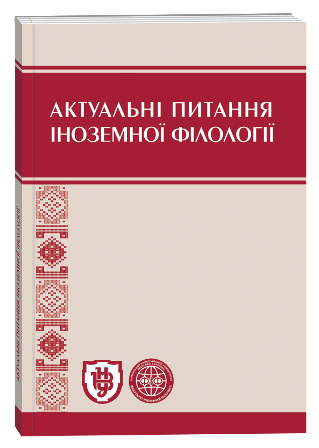METONYMIC MODELING OF POLITICAL DEBATE
DOI:
https://doi.org/10.32782/2410-0927-2022-16-19Keywords:
political speech, expressiveness, metonymy, stylistic tropeAbstract
The article studies the expressiveness of statements in political speeches and addresses. Political speech is presented as one of the main genres in the space of political debate. Expressiveness of statements is considered as a set of semantic and stylistic features of language units that provide the ability to influence the formation of social consciousness. The aim of the work is to analyze the ways of achieving the expressiveness of political speech through the use of metonymic models based on the lexical corpus of political debate between Barack Obama and Mitt Romney during the 2012 election campaign in the USA. Theoretical bases of studying the phenomenon of metonymy by Ukrainian and foreign linguists within the anthropocentric paradigm are given. The research methodology is based on the general ideas and issues of system functional analysis, namely on the integrative method of structural-semantic and contextualinterpretive analysis. The article analyzes the effectiveness of stylistic means of language influence in the speeches of B. Obama and M. Romney and highlights the main functions of metonymy, including: cognitive, communicative, visual, euphemistic and pragmatic functions. The scientific novelty of the study is that the analysis of metonymic expressions has allowed to identify the most characteristic types of metonymic models in modern political discourse, including those for which the speaker uses the name of the state, city or street to name the government or structures, as well as those components of which are lexical units that name landmarks, country, city or inhabitants of this country, nominate a certain area of activity, specific to the region. In conclusion, the article suggests that metonymic modeling is a stylistic method that makes it possible to preserve the appearance of objectivity, is a productive means of secondary nomination in the political text.
References
Акішина М. О. Дискурсивна метонімія. Науковий вісник Херсонського державного університету. 2010. № 11. С. 82–87.
Качур І. В. Сучасна лінгвістична теорія метонімії: лінгвокогнітивний і дискурсивний підходи. Науковий вісник Міжнародного гуманітарного університету. 2016. № 23. Том 2. С. 21–25.
Кущ Е. О. Метонімічні номінації як засоби вираження етнічних упереджень у дискурсі американських і британських політиків. Нова філологія. 2012. № 50. С. 62–65.
Приходько Г. I. Способи вираження оцінки в сучасній англійській мові : монографія. Запоріжжя : ЗДУ, 2001. 362 с.
Худолій А. О. Функціональні зміни у мові американської публіцистики кінця XX – початку XXI століття : монографія. Острог : НаУОА, 2006. 384 с.
Cislaru G. Metonymic Modeling of Discourse, Discourse Modeling of Metonymy. The Case of the Place-Name Based Metonymies. Culture, Language and Representation, 2007. Vol. 5. P. 93–110.
Simpson P. Stylistics: A Resource Book for Students. Psychology Press, 2004. 247 p.
Remarks by the President at Campaign Event : веб-сайт. URL: https://www.whitehouse.gov/the-pressoffice/2012/05/23/remarks-president-campaign-eventRemarks by the President at Campaign Event (дата звернення:18.08.2019).
Remarks by the President at campaign-event in Mt. Vernon, IA : веб-сайт. URL: https://www.whitehouse.gov/thepress-office/2012/10/17/remarks-president-campaign-event-mt-vernon-ia (дата звернення: 10.11.2021).
Remarks of President Barack Obama Weekly Address : веб-сайт. URL: https://www.whitehouse.gov/the-pressoffice/2011/12/16/weekly-address-honoring-those-who-served-iraq-war-comes-end (дата звернення: 11.11.2021).
Romney M. Remarks in Manchester Following the New Hampshire Primary : веб-сайт. URL: http://www.presidency.ucsb.edu/ws/?pid=98865 (дата звернення: 18.08.2019).
Romney M. Remarks in Portsmouth, Ohio : веб-сайт. URL: http://www.presidency.ucsb.edu/ws/?pid=115592 (дата звернення: 18.08.2019).







